The blockchain market is projected to reach $39.7 billion by 2025, growing at an impressive CAGR of 67.3% (MarketsandMarkets, 2020). However, realizing this immense potential hinges on effective marketing strategies that can drive adoption and growth. In this comprehensive guide, we'll explore a proven framework for positioning and promoting blockchain-based offerings, grounded in real-world examples and best practices.
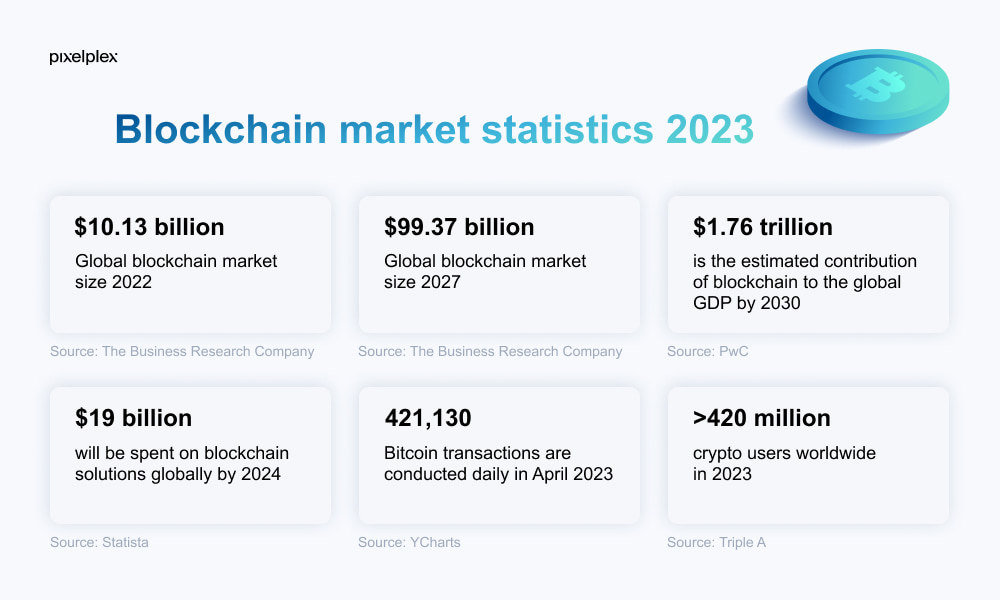
The State of Blockchain Adoption: Barriers and Opportunities
Despite its transformative potential, blockchain technology faces significant barriers to mainstream adoption, including:
- Lack of awareness and understanding among key stakeholders
- Technical complexity and perceived usability challenges
- Trust and credibility concerns, fueled by hype and misinformation
To overcome these barriers, blockchain companies must develop compelling value propositions, targeted messaging, and robust go-to-market strategies.

Developing a Winning Blockchain Value Proposition
Crafting a differentiated value proposition is critical for cutting through the noise in the crowded blockchain space. Key considerations include:
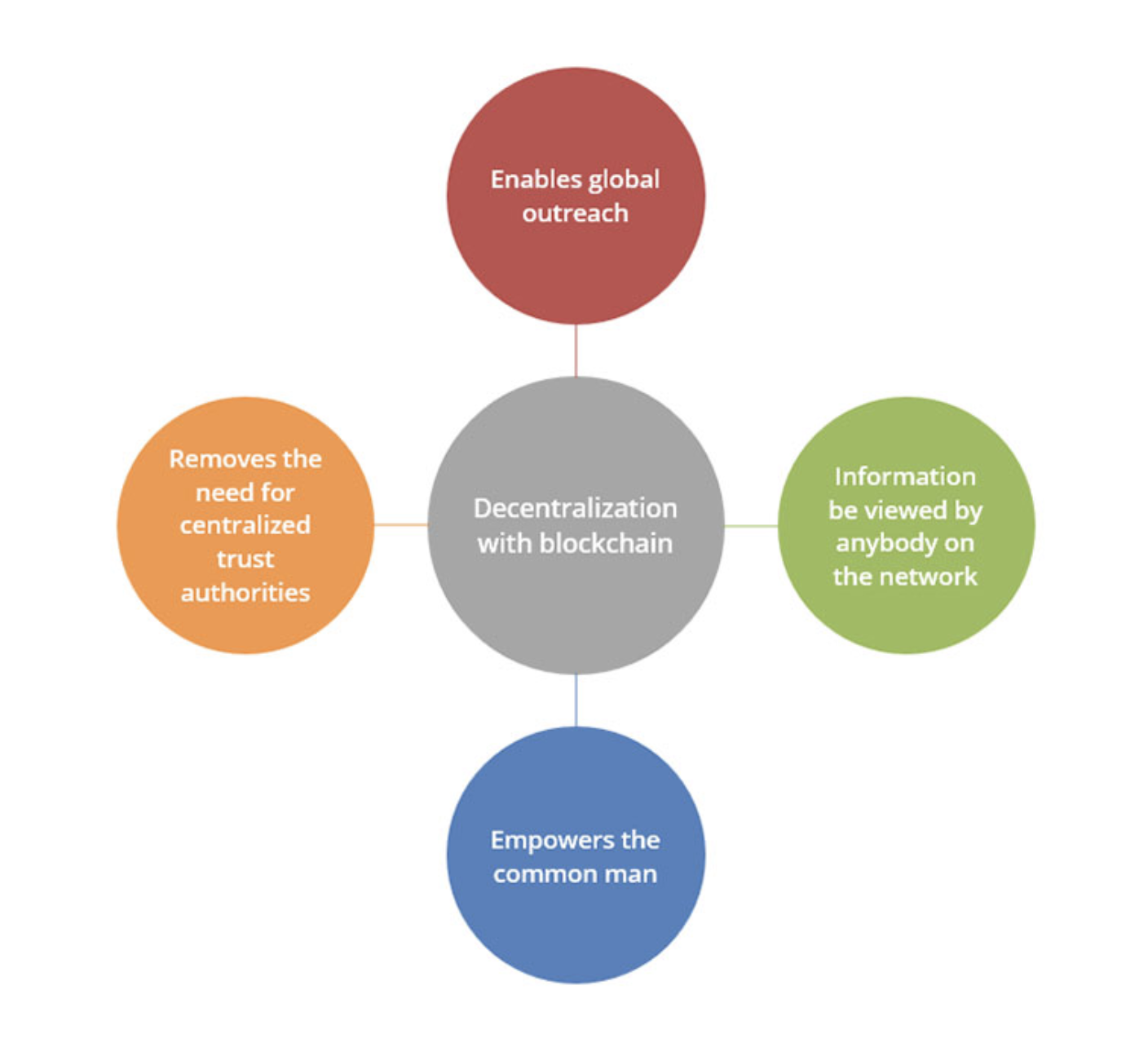
Target audience: Identify and prioritize the key stakeholders and decision-makers for your offering, such as enterprises, developers, or consumers.
Use case: Clearly articulate the specific problem your blockchain solution solves and the tangible benefits it delivers, using language that resonates with your target audience.
Competitive landscape: Analyze the strengths and weaknesses of competing blockchain solutions, and position your offering based on its unique advantages and differentiators.
Real-World Example: Positioning a Supply Chain Blockchain Solution
Our agency recently worked with a blockchain startup to position their supply chain traceability solution. By conducting in-depth market research and stakeholder interviews, we identified a compelling value proposition focused on enhancing transparency, efficiency, and trust across complex global supply chains.
This positioning enabled the startup to secure pilot projects with major enterprises, resulting in a 150% increase in revenue within 6 months.
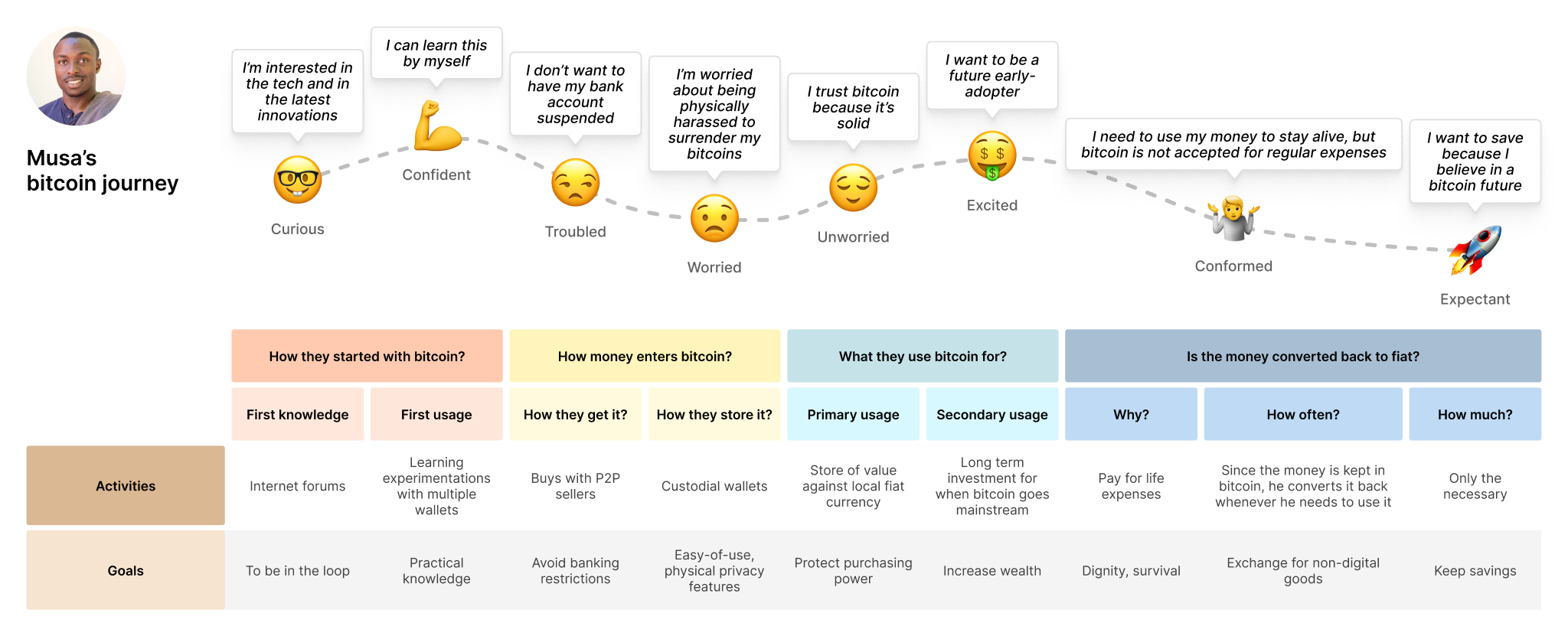
Understanding Blockchain Audience Segments
Effectively marketing blockchain solutions requires a deep understanding of the psychographics and motivations of different audience segments:
| Segment | Key Motivations | Messaging Considerations |
|---|---|---|
| Early Adopters | Innovative, risk-tolerant, seeking first-mover advantage | Highlight cutting-edge technology and disruptive potential |
| Enterprise Decision-Makers | ROI-focused, risk-averse, seeking proven solutions | Emphasize tangible benefits, ROI, and enterprise-readiness |
| Mainstream Consumers | Convenience-driven, trust-seeking, value-focused | Focus on simplicity, security, and real-world utility |
Tailoring your messaging and narratives to resonate with each segment is key to driving adoption and overcoming objections.
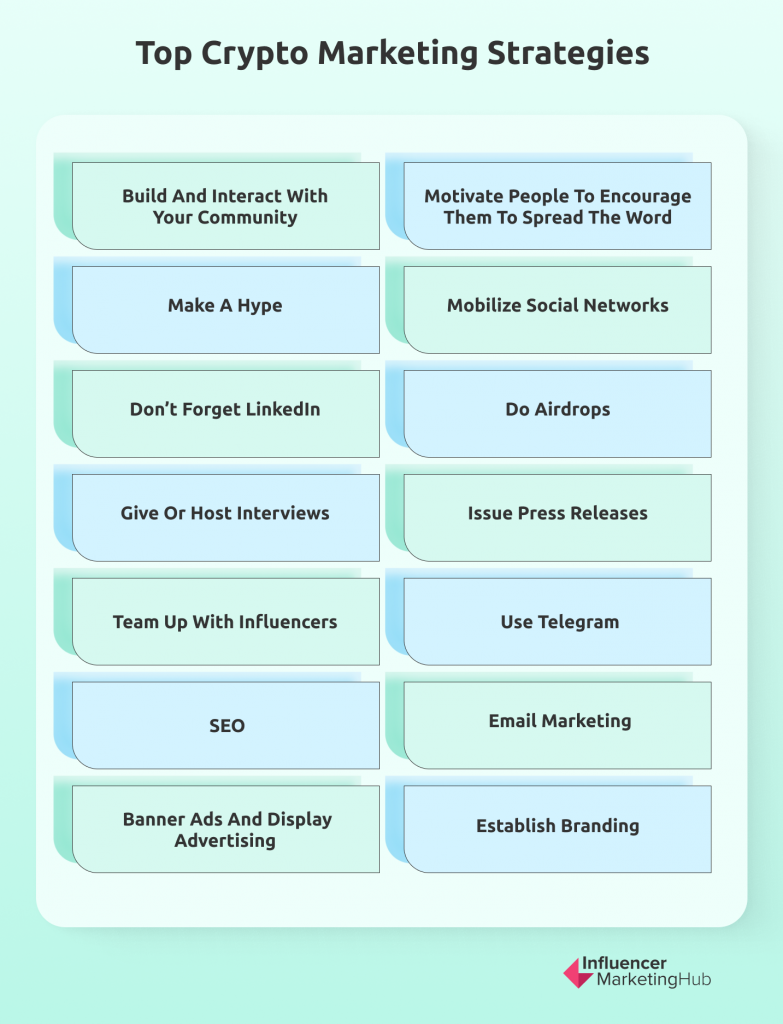
Go-to-Market Tactics for Blockchain Solutions
The most effective channels and tactics for promoting blockchain offerings include:
Thought leadership content: Develop educational blog posts, whitepapers, and webinars that demystify blockchain technology and showcase your expertise.
Community building: Foster a vibrant community of developers, partners, and advocates around your blockchain solution, leveraging social media, forums, and events.
Influencer marketing: Partner with respected blockchain influencers and thought leaders to amplify your message and build credibility.
Event sponsorships: Sponsor and speak at leading blockchain conferences and meetups to gain visibility and engage with potential customers and partners.
| Tactic | Awareness | Engagement | Conversion | Advocacy |
|---|---|---|---|---|
| Thought Leadership | High | Medium | Low | High |
| Community Building | Medium | High | Medium | High |
| Influencer Marketing | High | Medium | Low | Medium |
| Event Sponsorships | Medium | High | Medium | Low |
| Educational Content | High | Medium | Low | Medium |
| Social Media Marketing | High | High | Low | Medium |
| Email Marketing | Low | Medium | High | Medium |
| Paid Advertising | High | Low | Medium | Low |

The Power of Education and Thought Leadership
In an emerging space like blockchain, education is essential for building trust and credibility with key stakeholders. Successful content campaigns and initiatives include:
IBM's “Blockchain for Dummies”
This accessible guide demystifies blockchain technology for business audiences, establishing IBM as a trusted expert.
Coinbase's “Earn”
This interactive learning platform rewards users with cryptocurrency for completing educational modules, driving engagement and adoption.
By investing in education and thought leadership, blockchain companies can overcome knowledge barriers and position themselves as trusted advisors.

Driving Adoption Through Partnerships and Ecosystems
Blockchain's value proposition is inherently based on network effects and collaboration. Companies that successfully leverage partnerships and ecosystems can accelerate adoption and growth.
Case Study: Ripple's Partner Network
Ripple, a leading blockchain payment protocol, has built an extensive network of 300+ financial institutions across 40+ countries. By partnering with established players like American Express and MoneyGram, Ripple has driven significant adoption of its cross-border payment solution, processing over $2 billion in transactions.
| Phase | Objectives | Key Tactics | Deliverables | Timeline |
|---|---|---|---|---|
| Discover | Understand audience, competition, and opportunities | Market research, stakeholder interviews, SWOT analysis | Buyer personas, competitive analysis, campaign brief | Weeks 1-2 |
| Define | Develop positioning, messaging, and creative strategy | Value proposition workshops, message testing, creative brainstorming | Positioning statement, messaging matrix, creative concepts | Weeks 3-4 |
| Execute | Implement and optimize campaign across channels | Content creation, paid media, event activation, influencer outreach | Blog posts, ads, event sponsorships, influencer partnerships | Weeks 5-12 |
| Measure | Track, analyze, and report on campaign performance | Dashboard setup, data analysis, insights reporting | Weekly reports, campaign summary, lessons learned | Weeks 5-12 |
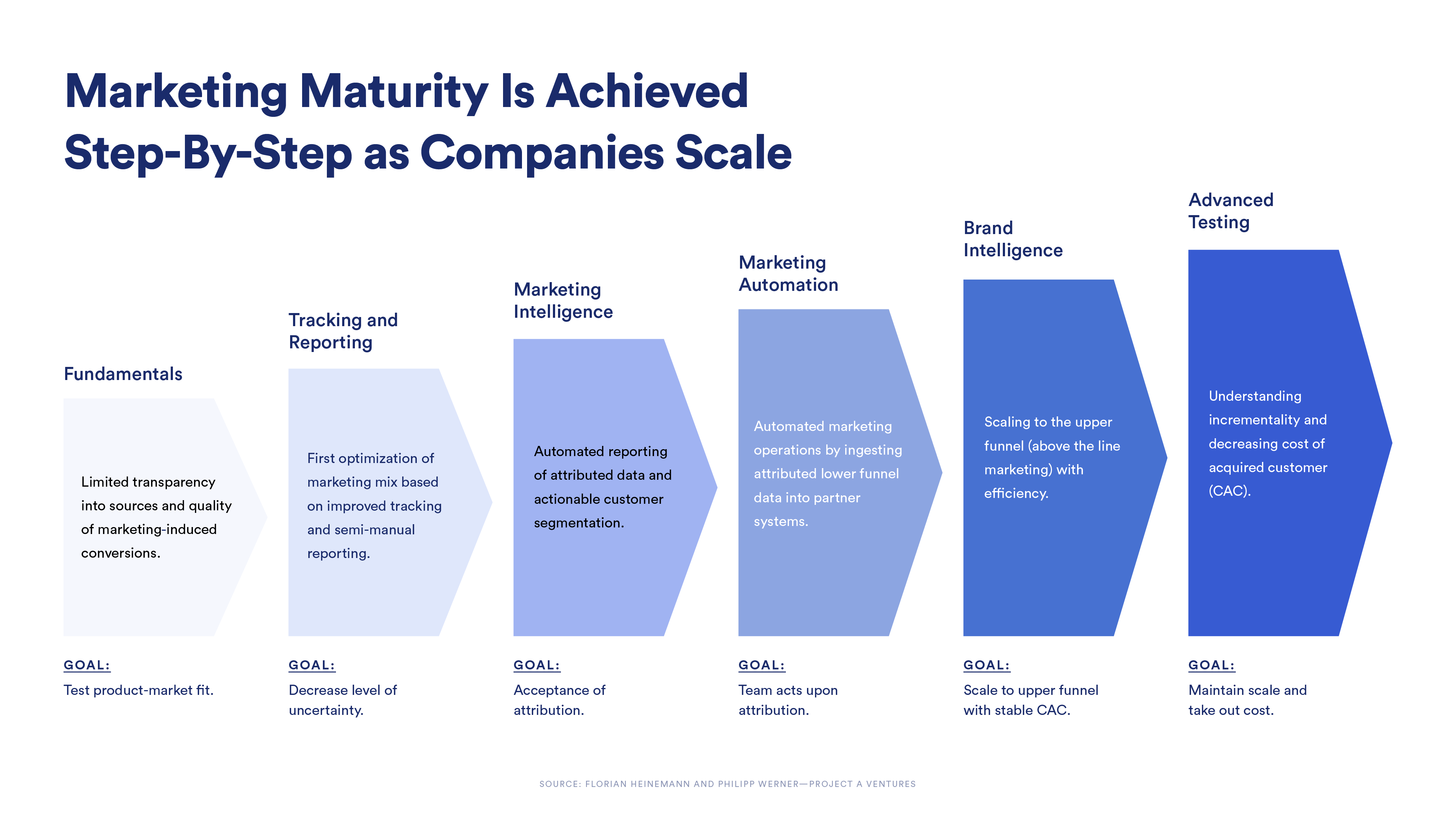
Designing a Results-Driven Blockchain Marketing Campaign
To execute an effective blockchain marketing campaign, follow this proven playbook:
Define clear goals and KPIs, such as leads generated, partnerships secured, or developer sign-ups.
Develop targeted messaging and content that resonates with your key audience segments and differentiates your solution.
Execute an integrated, multi-channel campaign that leverages content, events, PR, and digital marketing to drive awareness and engagement.
Measure and optimize performance using relevant metrics and attribution models, such as marketing qualified leads (MQLs) and customer acquisition costs (CAC).
Iterate and scale based on data-driven insights and lessons learned, doubling down on the tactics and channels that deliver the greatest ROI.
| Layer | Technologies | Benefits | Challenges |
|---|---|---|---|
| Data | Blockchain analytics, oracles | Transparency, trust, automation | Integration, privacy concerns |
| Execution | Smart contracts, token issuance | Programmability, incentivization | Complexity, regulatory uncertainty |
| Activation | Decentralized marketplaces, DAOs | Network effects, user empowerment | User experience, governance models |
The Future of Blockchain Marketing
As blockchain technology evolves, so will the strategies and tactics for driving its adoption. Emerging trends and innovations to watch include:
Decentralized marketing: Leveraging blockchain-based platforms and protocols to execute transparent, fraud-resistant marketing campaigns.
Token-based incentives: Using cryptocurrency and tokens to incentivize desired behaviors and actions, such as referrals, content sharing, or product usage.
AI-powered personalization: Applying machine learning and predictive analytics to deliver highly targeted, individualized messaging and experiences.
By staying at the forefront of these trends, blockchain companies can gain a significant competitive advantage.
| Stage | Characteristics | Key Priorities | Success Metrics |
|---|---|---|---|
| Experimenting | Ad hoc tactics, limited budget | Proving value, building buy-in | Engagement, qualitative feedback |
| Scaling | Increased investment, diversified tactics | Driving adoption, optimizing ROI | MQLs, partnerships, revenue |
| Leading | Integrated strategy, cross-functional alignment | Shaping industry, pioneering innovation | Market share, brand equity, ecosystem influence |
Embrace Innovative Marketing to Drive Blockchain's Future
The blockchain revolution is just beginning, and marketing will play a pivotal role in shaping its trajectory. As a blockchain company, you have an unprecedented opportunity to drive transformative change across industries and ecosystems.
By embracing the proven strategies and frameworks outlined in this guide, you can position your company at the vanguard of this revolution, unlocking new markets, partnerships, and growth opportunities. The future belongs to the innovators and disruptors - will you be one of them?
FAQ
1. What is blockchain marketing, and how is it different from traditional marketing?
Blockchain marketing is the practice of promoting and driving the adoption of blockchain-based solutions using a combination of traditional and emerging marketing strategies. Unlike traditional marketing, blockchain marketing often involves community building, token-based incentives, and a focus on educating and empowering users.
2. What are the biggest challenges in marketing blockchain solutions?
The biggest challenges in blockchain marketing include navigating complex technical concepts, overcoming perception issues related to cryptocurrency volatility and scams, and driving mainstream adoption in the face of regulatory uncertainty and limited understanding of the technology's potential.
3. How can I develop a compelling value proposition for my blockchain solution?
To develop a compelling value proposition, focus on clearly articulating the unique benefits and pain points your solution addresses for specific target audiences. Conduct market research, analyze competitors, and engage with potential users to refine your messaging and positioning.
4. What are the most effective channels and tactics for promoting blockchain solutions?
The most effective channels and tactics for blockchain marketing include thought leadership content, community building, influencer partnerships, event sponsorships, and targeted digital advertising. The optimal mix will depend on your specific goals, audience, and resources.
5. How important is education in driving blockchain adoption?
Education is critical in driving blockchain adoption, as many stakeholders still have limited understanding of the technology's potential and how it can solve real-world problems. Investing in accessible, engaging educational content can help build trust, credibility, and a shared understanding of your solution's value.
6. What role do partnerships play in blockchain marketing, and how can I identify the right partners?
Partnerships are key to amplifying your reach, credibility, and impact in the blockchain ecosystem. To identify the right partners, look for organizations with complementary strengths, aligned values, and a shared vision for the future of your industry. Evaluate potential partners using a structured framework that considers factors like strategic fit, audience overlap, and past performance.
7. How can I measure the success of my blockchain marketing campaigns?
To measure the success of your blockchain marketing campaigns, define clear objectives and KPIs upfront, such as website traffic, leads generated, or user signups. Use a combination of web analytics, blockchain explorer data, and qualitative feedback to track progress and identify areas for optimization.
8. What are some common mistakes to avoid in blockchain marketing?
Common mistakes to avoid in blockchain marketing include overhyping your solution's potential, neglecting to prioritize user experience and simplicity, and failing to build genuine, engaged communities around your brand. Stay focused on delivering real value, be transparent about your progress and challenges, and continuously seek feedback from your users and stakeholders.
9. How can I stay ahead of the curve in the rapidly-evolving blockchain marketing landscape?
To stay ahead of the curve, make a habit of reading industry blogs and publications, attending conferences and events, and participating in online communities and forums. Experiment with emerging technologies and tactics, such as decentralized autonomous organizations (DAOs) and non-fungible tokens (NFTs), and be open to collaborating and learning from other innovators in the space.
10. What skills and resources do I need to successfully execute a blockchain marketing strategy?
To successfully execute a blockchain marketing strategy, you'll need a mix of technical knowledge, marketing expertise, and project management skills. Key resources include a talented team with experience in blockchain development, content creation, and data analysis; a robust marketing technology stack; and a network of advisors, partners, and advocates who can provide guidance and support along the way. Don't be afraid to start small, iterate often, and seek help when needed - the blockchain community is full of passionate, knowledgeable individuals who are eager to collaborate and share their insights.




